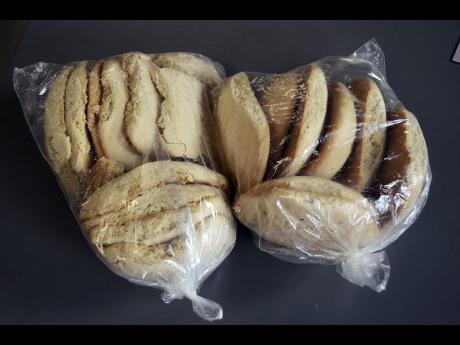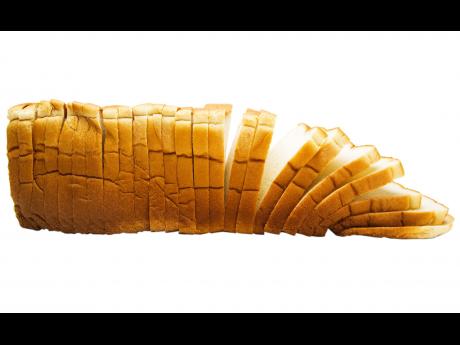Man does not live by sugar alone - A balanced diet is more important than singling out individual nutrients or foods
I was recently messaged an excerpt about the Government's plan to remove bullas from school. This also contained a long list of comments from persons who are undoubtedly much upset and affected and do not agree with the decision.
The message noted that the minister of education told teachers "Bullas and all those things will be withdrawn, generally, from the market, and it (approved food items) had to be whatever products are very much consistent with the Government's nutrition policy".
It goes on to note that manufacturers would get a standard on sugar content to operate from.
One noted comment was, "You write from a place of speculation and unverifiable wishful thinking, based on your own experiences that you are projecting on to others. You don't get to choose what others eat unless you are paying and even if you did, no one has to follow your DICTATES."
So enlightening!
I imagine that I was sent this message to 'tease' a response from me, and, I admit it was successful. So let me try to shed some light on those things.
As said previously, it is when calories taken in exceed body needs that underpin obesity, the main risk factor for diabetes and most chronic non-communicable disorders, whether the calories come from so called 'healthy or unhealthy food'.
So let's examine the products for the evidence, ensuring that we are comparing 'like with like' such as common types of different breadstuff at the same weight, as shown below.
This shows that the sweet product, bulla, is less 'fattening' (calorie dense), than the low sugar bread and the nutribun has less calories than the wheat bread, despite having more sugar.
The highest calories are in the low sugar bread, with the highest total carbohydrate, which will all turn to sugar anyway, once inside the body.
BREAD, LOW SUGAR - 2.5 slices hard dough
- Weight: 128g
- Calories: 427
- Fat: 2.5g
- Carbohydrate: 88g
- Sugar: 7.5g
- Sodium: 803mg
- Calcium: 10 per cent of daily value
- Iron: 25 per cent of daily value
NUTRI BULLA - one
- Weight: 128g
- Calories: 395
- Fat: 4.5g
- Carbohydrate: 82g
- Sugar: 39g
- Sodium: 385mg
- Calcium: 17 per cent of daily value
- Iron: 22 per cent of daily value
NUTRI BUN - one
- Weight: 128g
- Calories: 343
- Fat: 1.8g
- Carbohydrate: 74g
- Sugar: 24g
- Sodium: 256mg
- Calcium: three per cent of daily value
- Iron: 25 per cent of daily value
WHEAT BREAD - three
regular slices
- Weight: 128g
- Calories: 361
- Fat: 4.9g
- Carbohydrate: 66g
- Sugar: 6g
- Sodium: 394mg
- Calcium: seven per cent of daily value
- Iron: 16 per cent of daily value
NO NUTRITIONAL BASIS
I hope, therefore, that sugar is not the only criteria being used to assess food products. From my perspective, there ought to be more concern about the level of sodium in the low sugar bread, which could aggravate high blood pressure.
Will we then ban all types of 'breadstuff' from the market, for being fattening, including banana bread, pumpkin and carrot bread, corn bread?
There is no nutritional basis to ban those things from our shelves. At this rate, we will bring back undernutrition, and added to anorexia (from fear of eating) in our youth.
There should be no concern about displacing local agriculture, as this would target cooked meals.
Perhaps these named breadstuff could be reassigned, to nourish our 'budding' student athletes, as they would be most appropriate as 'after-school pre-training nourishment'.
Given the emphasis on the sports product, we need to ensure that our athletes are properly nourished, thereby, enhancing performance.
Further, standards can be misleading when they do not consider nutritional requirements in its totality.
Often, emphasis on only so-called 'healthy foods' merely create imbalances. For instance, some medical practitioners still insist that patients abandon all 'red meat' in favour of fresh fish (which, of course, the population fries).
In addition, the lack of red meat in the diet has these same patients taking iron tablets to correct the anaemia which resulted, and randomly using a number of alternative 'healthy' imported foods that contribute to the obesity.
When will we return to the concept of the balanced diet for 'healthy' eating, rather than singling out individual nutrients or foods?
- Patricia Thompson is a registered nutritionist with the Jamaica Island Nutrition Network (JINN) Email: nutritionjamaica@gmail.com; yourhealth@gleanerjm.com.




